Basic counting skills Normal Worksheets for Ages 4-8
7 filtered results
-
From - To
Discover our engaging Basic Counting Skills worksheets designed for children ages 4-8! These thoughtfully crafted resources support early learners in developing essential counting skills through fun and interactive activities. Our worksheets feature vibrant illustrations and age-appropriate exercises that make counting enjoyable. Kids will practice number recognition, one-to-one correspondence, and simple addition and subtraction while enhancing their mathematical abilities. Ideal for classroom use or home school, these worksheets foster a love for learning and build a strong foundation for future math skills. Explore our collection today and empower your child with the confidence to master basic counting!
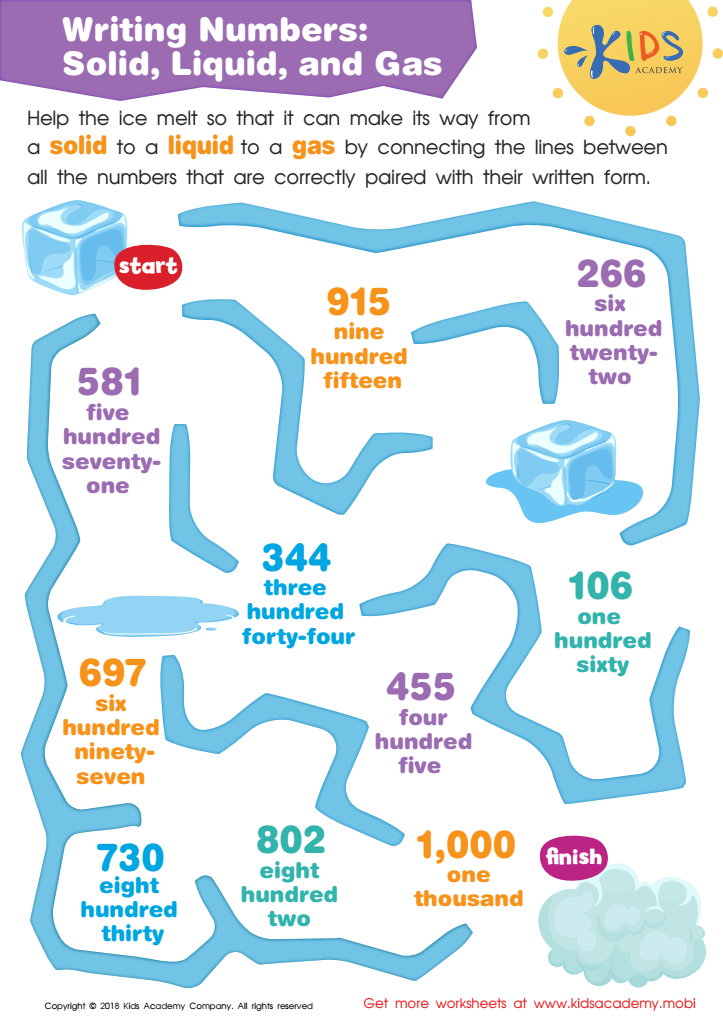

Solid, Liquid, and Gas Writing Numbers Worksheet
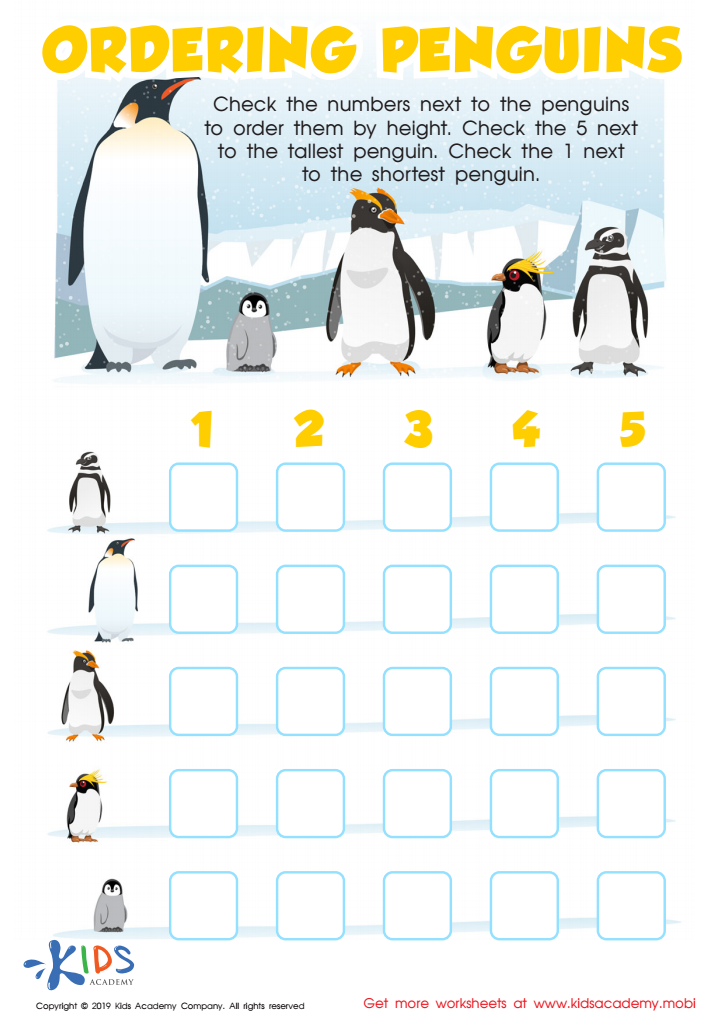

Ordering Penguins Worksheet
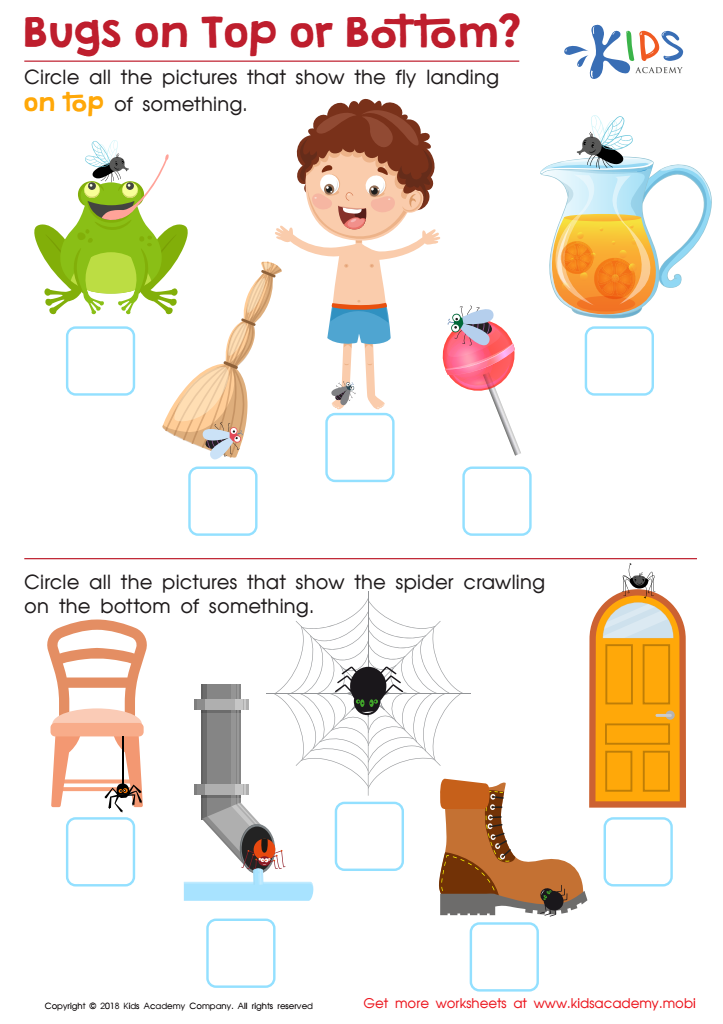

Bugs on Top or Bottom? Worksheet
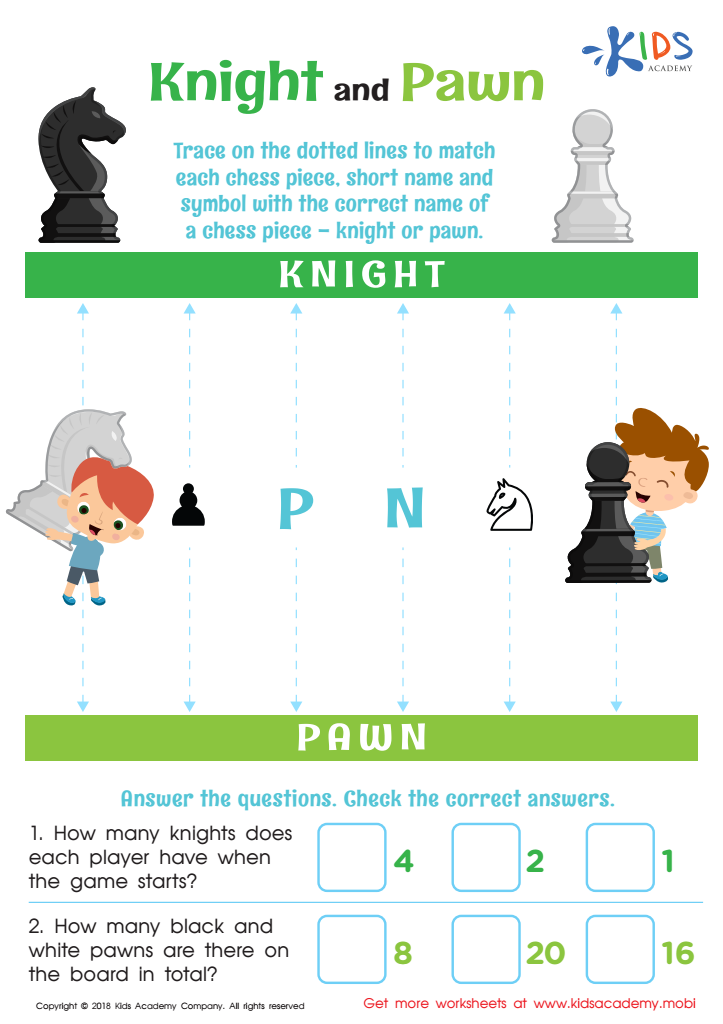

Knight and Pawn Worksheet
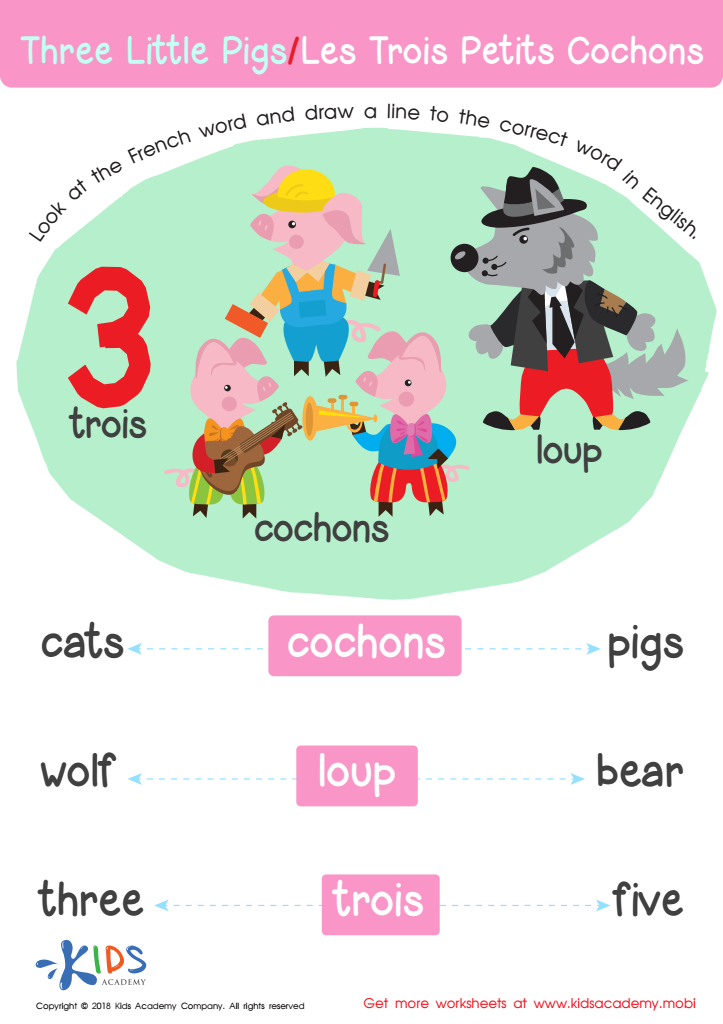

Three Little Pigs / Les Trois Petits Cochons Worksheet
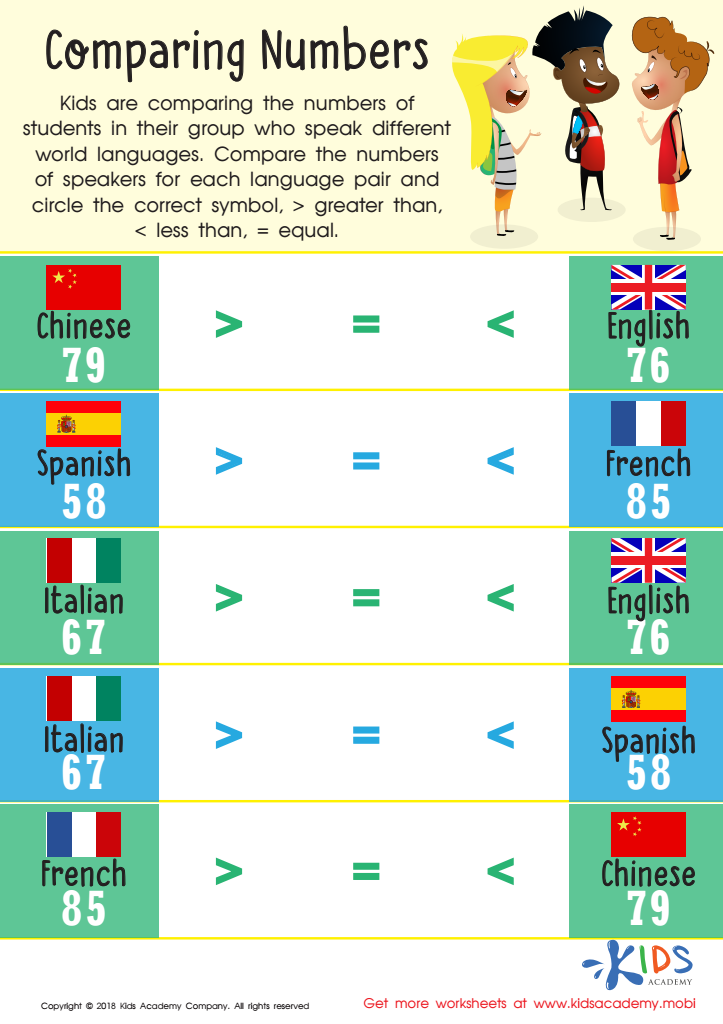

Comparing Numbers Worksheet for 1st Grade
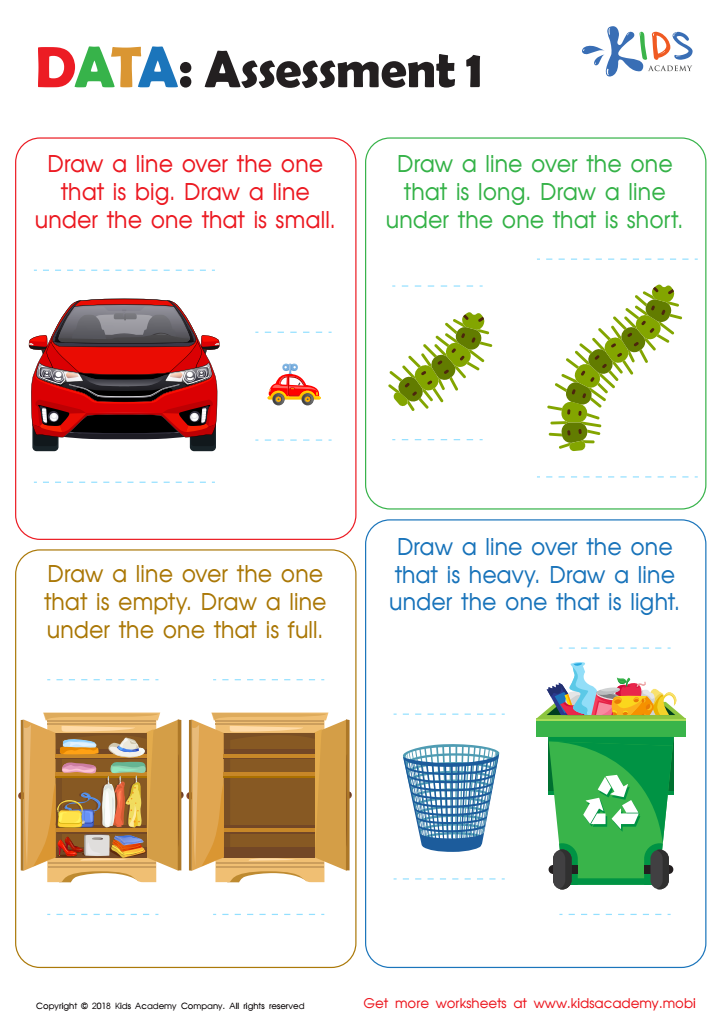

Data: Assessment 1 Worksheet
Basic counting skills are foundational for children aged 4-8 as they pave the way for future learning in mathematics and various life skills. Being able to count sets of objects accurately fosters numeral recognition and cultivates mathematical reasoning. For parents and teachers, encouraging counting can greatly boost a child's confidence and engagement in learning activities.
This critical skill aids in early problem-solving and cognitive development, as it nurtures logical thinking. Children utilize counting in daily life scenarios—like taking turns, sharing snacks, and recognizing quantities during play. Establishing a strong foundation in counting also prepares children for more complex math concepts, such as addition and subtraction, which typically begin in later elementary years.
Moreover, these skills enhance a child’s ability to follow instructions while developing patience and persistence in overcoming challenges. Incorporating fun, interactive counting games during daily routines can heighten their interest and facilitate joyful learning experiences. For teachers, integrating counting into their curriculum creates enriching environments that promote holistic growth. Ultimately, ensuring that children master basic counting skills equips them with the toolkit necessary for academic success and instills a lifelong appreciation for math. Parents and teachers play a crucial role in cultivating these essential skills.
 Assign to My Students
Assign to My Students


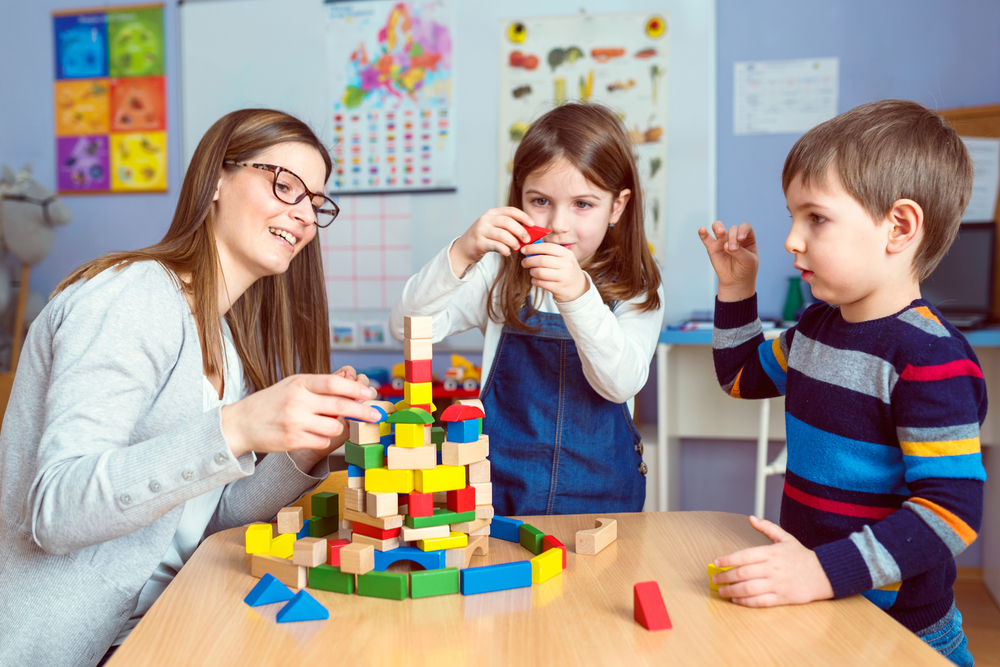


.jpg)










